Shaping Giants' Salary Cap Plan: Part 1 - How 2021 Created a Conundrum for 2022

Houston, we have a problem.
Okay, so maybe the city of Houston, whose Texans have their own problems to sort out, don't care about the New York Giants.
But yes, the Giants have a serious problem with their salary cap that needs to be addressed sooner than later by new general manager Joe Schoen and salary cap guru Kevin Abrams, the latter who appears to be staying on to help straighten out the mess that needs immediate fixing.
"It’s a concern and it’s real," Schoen said during his introductory press conference. "Vice President of Football Operations/Assistant General Manager) Kevin Abrams and I haven’t talked about it yet. We looked at it, we’re going to get together at the end of the week or first of next week to start formulating a plan, but we’re going to have to get below the salary cap."
How bad is the situation? With the 2022 NFL salary cap set at $208.2 million, really bad. Per the NFLPA public cap report, the Giants have--wait for it--$13,991 in space.
Yes, that's thirteen THOUSAND, not million, and yes, that is currently the lowest amount in the NFL.
In terms of functional cap space, which is what the Giants need to comply with the Top 51 rule that starts on March 16, the new league year, New York is a whopping $19,638,213 in the red which means they're going to have to make some deep cuts.
And of the Giants rookie draft pool, set at an estimated $20,327,793, the team will actually need $12,572,793 to make up for the differences in signing their picks (if they stay at the fifth overall spot).
And if all that's not bad enough, there is still some postseason accounting to be done, namely the awarding of those eligible players a Proven Performance Escalator (PPE), given annually to the league to those players who end up playing more than their initial contract anticipated.
Per Article 7, Section 4 of the 2020 Collective Bargaining Agreement, the PPE governs the PPE, there are three qualification levels:
- Level One PPE is earned if a player participates in a certain percentage of a team's offensive or defensive snaps in two of his first three seasons or averages that percentage of offensive or defensive snaps over his entire first three years. For 2nd round picks, the average is 60%, and (as was the same in the 2011 CBA) for 3rd-7th round picks it is 35%.
- Level Two PPE is earned if a player participates in at least 55% of a team's offensive or defensive snaps in all of his first three seasons.
- Level Three PPE is earned if a player is selected to a Pro Bowl on the original ballot (not as an alternate) in any of his first three seasons.
(Per Over the Cap, the Giants have three players from the 2019 rookie class eligible for PPE--defensive back Julian Love, receiver Darius Slayton, and tight end Kaden Smith.)
Yuck!
What does this mean for the Giants going forward? Right, some deep cuts, some tough decisions, and a little bit of sacrifice this year to get the cap on the right track toward a health status in future years.
How Did Things Get So Bad?
The Giants took a very unexpected approach toward free agency last off-season, which I spoke about in this article and this one. According to Spotrac, they spent $157,452,500 on 33 free-agent contracts, the fifth-highest total in the league and a significantly higher amount than the $108,852,500 they spent in 2020.
The decision to spend was a curious one considering the league was entering its first off-season following the pandemic's effect on revenue which caused the salary cap to drop from $198.2 million to $182.5 million.
Still, the Giants, perhaps desperate to get playmakers around Daniel Jones and to be more competitive, took the ill-advised free agency route, which by the way didn't work the last two times they tried it (in 2014 and 2016).
Nonetheless, down that road they went, and to make it all fit, the Giants handed out a bunch of one-year "prove it deals," but on their big-money contracts, they managed to massage the numbers so that they were low in the first year (2021). The drawback, however, was that in Year 2 of those deals, the numbers swelled up significantly.
But as injuries kept eating away at the roster--the unexpected X-factor--the Giants were forced to replace those players they lost. They spent $31,890,700 on waivers, the second-highest amount in the league, to compensate for over $40.829 million worth of talent that ended the season on injured reserve.
Meanwhile, as the injuries were piling up, the Giants were forced to execute restructures to clear enough space to continue operating during the season regarding elevating practice squad players and COVID-19 replacement players and upgrading where they could.
In all, it amounted to the perfect storm that has led to this team's worst salary cap management jobs in the last decade, topping the 2014 cap job in which the team was left with just an estimated $80,748 in cap space that yielded a 6-10 record.
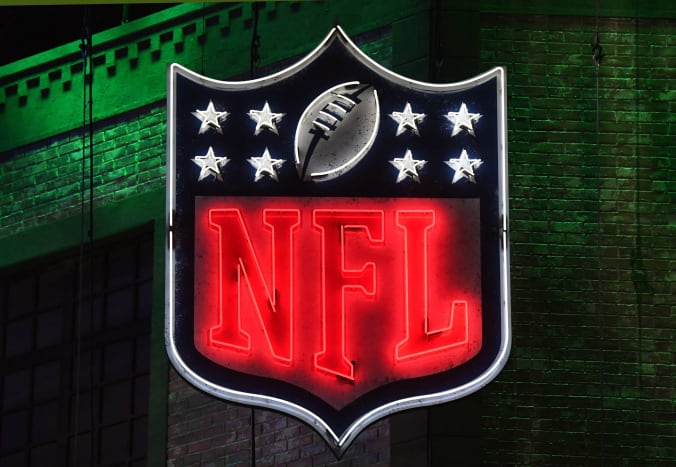
Which team(s) have the most attractive head coaching openings? Let's take a look.
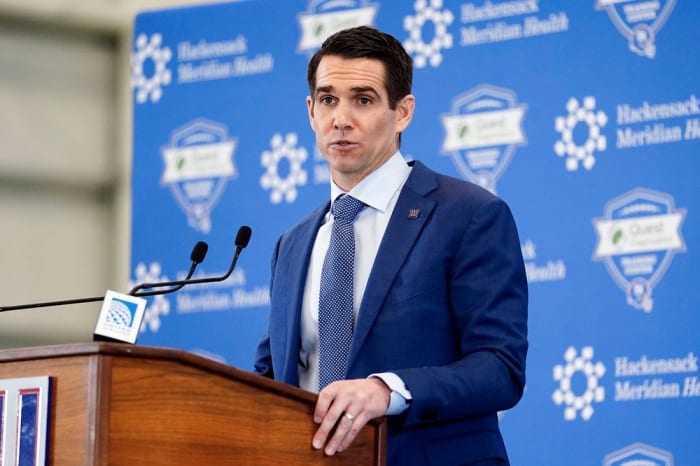
There's a lot of hope for sunnier skies ahead in the land of the Giants. A look back on the start of the Joe Schoen era.
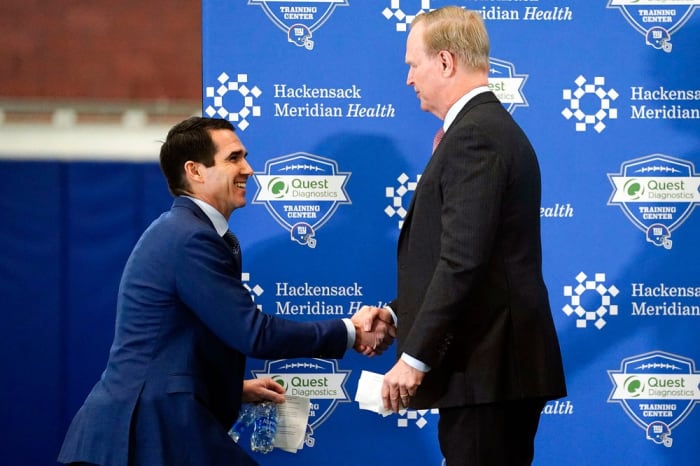
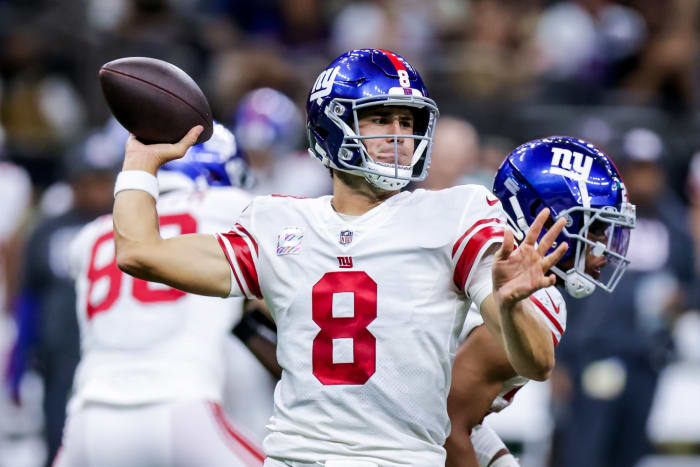
John Mara admits that franchise has done "everything possible to screw up" Jones; adds that is going to change.


How to Fix It?
The three most common ways to clear more cap space include roster cuts, restructures, and extensions.
We can probably rule out any extensions this year, not just because the team won't have the money to do so, but also because the Giants don't have anyone among their free agents (see video at the top of this article) that they absolutely must extend.
The roster cuts will result in dead money being poured into this year's cap. Dead money, for those not aware, occurs when any owed guaranteed money and any remaining prorated signing bonus accelerates into the cap even though the player is no longer on the roster.
With the signing bonus aspect, a player can be designated as a pre-June 1 cut or a post-June 1 cut, with up to two post-June 1 designations allowed. While designating a player as a post-June 1 cut can save more in the short term, that money won't be available until after June 1, plus the remaining part of the signing bonus will accelerate into the following year's cap. That is why except for extreme circumstances, it's best to rip the bandage off and endure the pain right away.
That said, there is one argument for designating guys as post-June 1 cuts this year. The impact of the new television deals will hit the salary cap starting in 2023, at which point, according to Over the Cap, the 2023 league-wide cap will jump from $208.2 million this year to $225 million in 2023. That would make absorbing at least one post-June 1 cap hit tolerable for sure--assuming the team picks the right one to absorb.
With restructures, this is simply pushing money to future years when there is more cap space to be had. This carries a risk, though. The Giants restructured several contracts this past year, and the result is they are as top-heavy as they've ever been.
The Giants' top-5 cap numbers for 2022 account for 47.8 percent of the team's total 2022 cap--unheard of and a big problem. Here is the breakdown as it stands as of the end of January:
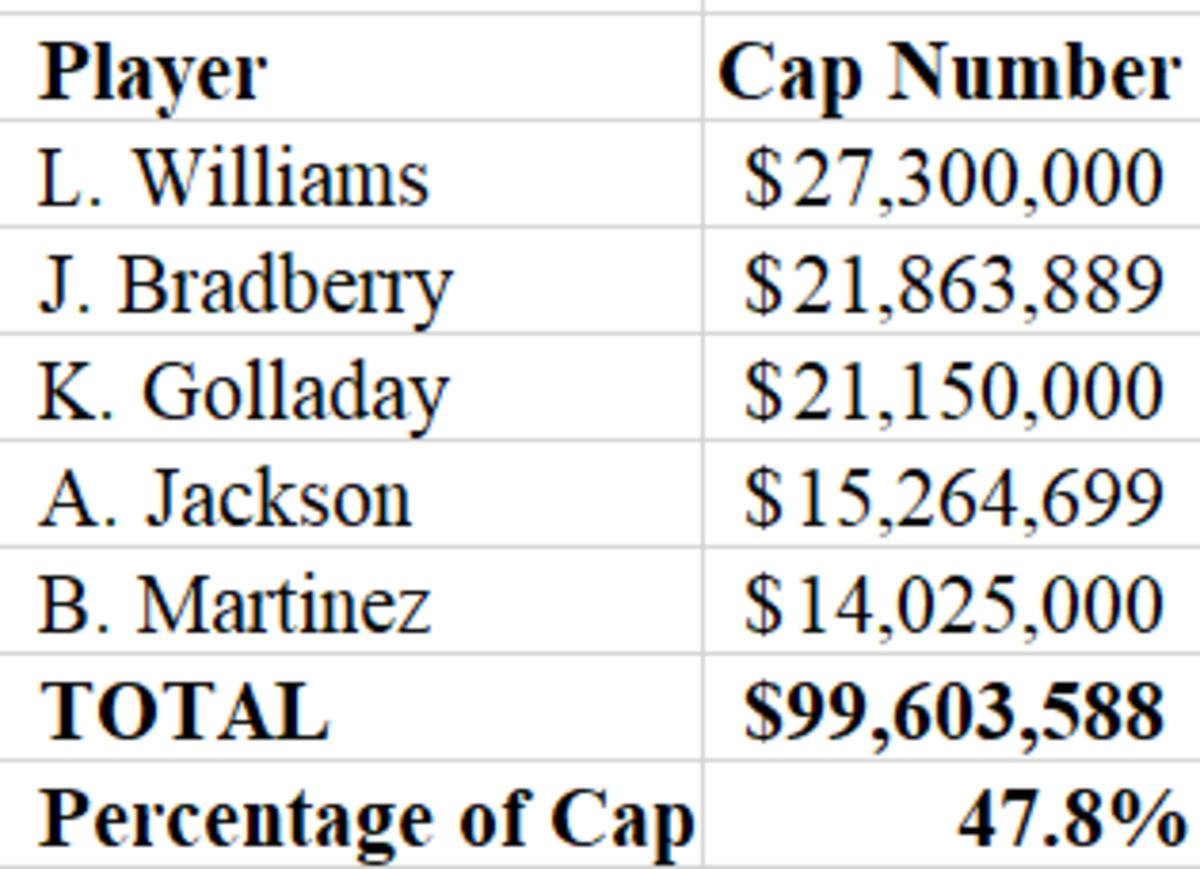
Expanding the Giants cap figure to the top 10 (usually the cutoff point for determining a team's top-heaviness), ten players account for nearly 72 percent of the team's 2022 salary cap.

Clearly, that has to change, but--spoiler alert--it's not just the top ten where the Giants can gain cap relief.
Now that I've outlined how we got to this point, the next step is fixing it. I will give you my plan to do so in Part 2 of this analysis 9which should be out by Saturday), but as Schoen said, it's not cut-and-dried.
"When the new head coach gets in here, the new staff, we’re going to get together, we’re going to watch the film, we’re going to evaluate everybody, we’re going to talk to the support staff," he said.
"Who are the guys that kind of fit the vision that we’re looking for? Who are the guys that are going to buy into the program? Then, we’ll make educated decisions once we have more information. There are going to be difficult decisions that are going to have to be made."
Join the Giants Country Community
- Sign up for our FREE digest newsletter
- Follow and like us on Facebook
- Submit your questions for our mailbag
- Listen and subscribe to the daily LockedOn Giants podcast.
- Subscribe and like the new LockedOn Giants YouTube Channel
- Sign up for our FREE message board forums
